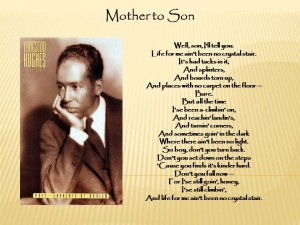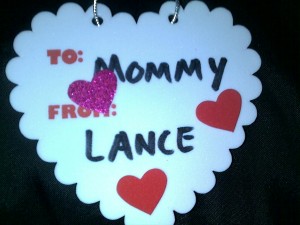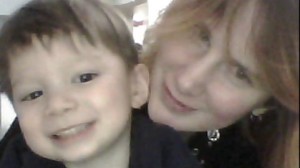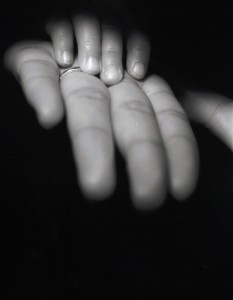Gaming As Therapy: Novels for the Mind
by Terra_Cide, HSM copy editor
A mother’s love for her child is like nothing else in the world. It knows no law, no pity, it dares all things and crushes down remorselessly all that stands in it’s path – Agatha Christie
As many of you probably know – either through my writings or other means – I am a mother.
And if you’ve read any of my articles, you’ll also know that I rarely write on such a personal level as I am about to now.
I have a wonderful three-year-old little boy named Lance, who is quite possibly the center of my world. In classic boy fashion, he loves anything to do with cars; not just the Disney movie Cars, but everything to do with cars. He and I will sit for hours on end watching Top Gear, and he’s even known to enthusiastically shout Jeremy Clarkson’s signature, “POWEEEERR!” on occasion. When I’ve played Burnout: Paradise City in the past, you can be for sure he’s right there, watching in rapture, and even occasionally taking the controller and trying his hand at the action.
Now he’s not a complete car nut – yet. He has his fair share of kids programs and movies that he loves too: Mickey Mouse Clubhouse, the Ice Age movies, The Penguins of Madagascar, Scooby Doo, Thomas and Friends and such.
He also loves Legos, and has Lego pajamas. And not just any Lego pajamas. Star Wars Lego pajamas. Oh yes.
He loves music; loves to play it, and loves to dance to it. He has mad drumming skills – I’m not making this up. And he does a pretty mean air guitar, too. He’s even been known to attempt to sing along in the car with me.
And even at his age, he could teach the male denizens of Home a thing or two about how to charm the ladies. He has manners, he’s cute, and he damn well knows it.
Lance is also Autistic.

Hindsight being 20-20, I know that I saw the signs early on, even when he was an infant. From the way he would cry himself into inconsolable rages whenever he got upset, to the way he would be averse to certain textures (grass, for example, being among the first); from the way he would ball his fists tightly whenever he would be unsure about something, to the way he would fixate upon a toy for far too long than a child his age should. A part of me wanted to believe that these were just developmental phases that he would eventually grow out of, although a part of me knew, deep down, that this wasn’t the case.
There is no quantifiable way in which to measure the amount of parental guilt I have – living in denial as I did for nearly two years. It wasn’t until his two year checkup, when Lance’s pediatrician asked me outright if I would like to get him screened, that I replied without hesitation, “yes.”
Lance went through the various tests, during which he also started to receive in-home therapy. It was obvious from those early sessions that he was a bright boy who had a difficult time expressing himself, or even understanding why his world works the way it does. He would get angry to the point of meltdown. But there was progress, and where there’s progress, there is hope.
It was a bit of a relief when Lance’s diagnosis of Autism came last summer. Relief and a bit of sadness, as at that time, I had no idea of knowing whether or not my son would ever have the opportunity at a relatively normal life. Having little support in my offline world didn’t help either, what with my relationship with his father falling apart around me, and my parents living over two thousand miles away – of whom my mother was dealing with her own health challenges at the time.
So I turned to the people who hadn’t let me down, and whom I knew I could trust. The handful of confidants and friends I came to know in Home.
Now, to do something such as this is not easy for me to do, as I am terribly reluctant to share my burdens with anyone, both literally and metaphorically. I am a fiercely independent person. I’ve manhandled furniture that weighs as much as I do up and down stairways on my own on numerous occasions. I have taken on tasks alone that I probably should not have done, but as there was no other assistance to be had, I did them anyways. Confiding and depending upon someone else does not come easy to me, and results in much proverbial kicking and screaming on my part as I’m dragged into acquiescence.

In those early days, while still trying to process all the information about Lance’s specific type of Autism and coordinating with his case worker, the occupational therapist, the speech pathologist, and the general therapist, going online and talking with these friends was my only outlet. Yes, many hadn’t experienced the same and couldn’t completely identify with what I was going through; many more didn’t even know what specifically was going on – as I had yet to feel comfortable in talking about it myself – but they were an empathetic ear where I had none offline. Gaming and interacting with them was my moment of “me” time. And gradually, it also became a source of therapy for Lance as well.
I should point out before I continue that Lance is what they call a “high functioning” Autistic. Which really only means he isn’t the stereotype everyone has in their mind when they think of Autism. He is aware of and interacts with his environment; he wasn’t ever completely non-verbal, although his limited communication skills made him easily frustrated whenever he wanted something or needed to express himself. The people who cling to the vision of what a stereotypical Autistic child is see Lance and don’t see anything “wrong” with him; he’s just a “normal” kid. But those who are experienced, those who have worked with or know kids who have Autism, they know.
Autistic people are very visual, meaning Lance can study something – the movement of a bike’s wheels or how banging on a hand drum in different ways produces different sounds, for example – and given the opportunity to try it out himself, he will learn it. His spatial awareness is astounding. He is also hyper-focus, and he finds it hard to change from doing one activity to another. So redirecting and refocusing him from things that he shouldn’t be doing to an activity that is more acceptable can be challenging at times.
 Over time, Lance grew to recognize some of the people I regularly hung out with in Home just by the appearance of their avatars. He would recognize their voices when we would chat on mic, either in a game or in a private space chat (especially the girls – told you he was a ladies man). He even recognized my female avatar – going so far as pointing at the screen and saying, “mommy” – and knowing the difference between it and the other avatars, as well as my default avatar and the male avatar I use to chase away unwelcome attention. He got to know my friends’ avatars as well, pointing and calling them either by their user names, or – if I knew it – their real names. Just the mere sight or sound of my friend SephirothsWifey would send him into the biggest of flirty giggle fits.
Over time, Lance grew to recognize some of the people I regularly hung out with in Home just by the appearance of their avatars. He would recognize their voices when we would chat on mic, either in a game or in a private space chat (especially the girls – told you he was a ladies man). He even recognized my female avatar – going so far as pointing at the screen and saying, “mommy” – and knowing the difference between it and the other avatars, as well as my default avatar and the male avatar I use to chase away unwelcome attention. He got to know my friends’ avatars as well, pointing and calling them either by their user names, or – if I knew it – their real names. Just the mere sight or sound of my friend SephirothsWifey would send him into the biggest of flirty giggle fits.
In short, Home and my friends helped give him the confidence to expand his communication skills. It helped him – along with his other therapy sessions – form that missing link between the visual thoughts in his mind and the verbal world around him.
He would even attempt some of the dance moves he saw performed on-screen by the avatars. It was fascinating to watch as Lance used what he saw on Home as a way to learn about movement in the same way he was using it to recognize people. I don’t really know of anything funnier than watching your toddler trying to do the ladies’ version of the salsa, complete with the intro booty-shake. It didn’t take long for him though, to realize that there was a difference between the ladies’ and the men’s salsa, and being male, started to do the more gender appropriate dance moves.
And there’s his interaction with games. As I mentioned earlier, Lance thoroughly loved the game Burnout: Paradise City. It has everything a little boy could want, really; fast cars, gravity-defying stunts, vehicular carnage on a massive scale, and Guns N’ Roses. Don’t ask me why he fixated on GNR; perhaps it was simply because it was the game’s intro song, and whenever it played, he would materialize in front of the TV – dancing – faster than the human eye could follow. Maybe it just translated into mental pictures for him better than other songs.
But this isn’t the only game he enjoyed. Before my separation, I had downloaded the demos for Flower and and Little Big Planet 2. With Flower, the use of the Sixaxis controller, the gentle, lilting guitar music, and the sight of the petals dancing upon the screen in accordance to how you moved the controller was a delight Lance could not resist.
And whose inner child doesn’t thrill at the sheer whimsy and imagination of LBP2? Last I heard, the franchise had four million levels to choose from, and you can be sure that when he is old enough (and his mother once more has a PS3 to access), Lance will definitely be adding to those levels. Designing, creating, inventing, seeing the pictures in his mind be brought to life on screen – I can’t think of anything he would enjoy more. Well, except for maybe a power-sliding Corvette.
 Lance has just finished his third month of preschool, and I can’t begin to tell you the growth he’s gone through being in such a wonderful, supportive environment. I’m lucky that his case managers got him into one of the best schools in the state to help him along. They believe that when he starts kindergarten, he will be able to be mainstreamed with continued assistance, both in and out of the classroom – a far cry from where we were when this whole journey started.
Lance has just finished his third month of preschool, and I can’t begin to tell you the growth he’s gone through being in such a wonderful, supportive environment. I’m lucky that his case managers got him into one of the best schools in the state to help him along. They believe that when he starts kindergarten, he will be able to be mainstreamed with continued assistance, both in and out of the classroom – a far cry from where we were when this whole journey started.
We’ll soon be coordinating a plan for for his continued education through the summer. I’d love to get him involved with something that appeals to his musical leanings, as he’s added imitating the playing of a violin to his repertoire of “air” instruments. However that is sadly beyond my means, and probably more expensive than a PS3 with Rock Band 3 added to it. But I remain hopeful and will continue the search.
So as I bring this story to a close, I recall in an early podcast episode of HSM’s The Upload, where they guys talked about politics and video games, and how as we get closer to yet another election cycle here in the US, the video gaming industry becomes the easy whipping boy of choice for politicians eager for a vote. To those who say that games are too violent and we need to protect our children from rotting their minds away by establishing more laws and restrictions upon video games, I present to you here, my counterpoint.
Yes, there are parents out there that cannot be bothered to think and use discretion and educate themselves on the games their children play. I get that. But to crack down upon the gaming industry for those individuals and their laissez faire attitudes towards parenting will be depriving my child and children like him of a way to learn about the world. You may as well ban all the noteworthy books in the world for those who think in words.
My son thinks in pictures, and video games are novels for his mind. I dare you to tell me otherwise.



 Twitter
Twitter
Beautiful!
Great article, really enjoyed reading and can totally relate to this as my boy Jack is 8 and also autistic. He loves when I go on Home, plays Burnout with me, and is addicted to Locoroco. Thanks for sharing and best wishes to Lance & Mum
Ah, Loco Roco -- that space used to crack Lance up all the time! Easily his favorite space in Home.
And thank you for sharing about your son as well.
What an incredible article Terra. I know it took a lot for you to do this, being as private as you are and I commend you for your courage. It is great to hear from people like you that see gaming and Home through different eyes than most of us. Your son is adorable by the way, and those ladies better watch out when he comes of age! I agree with your assessment of the politics behind all of this. I have some friends who are very strict with what they allow their children to either watch or play and they allow their son and daughter to play video games, they are just careful which ones is all. So I agree it is the parents job not the governments to tell us what to allow for our children. Great job!
Thank you Terra for sharing your story. You’ve hit on a subject which has fascinated me for some time.
My wife is an ESE teacher, specializing in ASD. Through her I became aware of, and educated to, the mayhem and mystery surrounding children with Autism. As a lifelong gamer and frequent user of Home, I became very curious as to how children with ASD of varying levels responded to both video games as well as Home. Unfortunately, to my knowledge, there have been no studies done so I’ve relied only on my own observations of about half a dozen people with Autism that I know of who use such technology, as well as stories I hear from parents or guardians like yourself.
From my observations, it seems that children (and adults, for that matter) on the higher end of Autism (much like your son) seem to be drawn to video games…and become very, very good at them. One of my Home friends, as an example, has a teenage child with high function Autism who uses Home and is an avid gamer; he says that the kid is a video game genius who’s abilities with a controller far surpass mere mortals. While I’ve been told his frustrations get the better of him in real life from time to time, he’s a great kid, and lots of fun to hang out with in-Home…you would never know he was anything more than a “normal” teen.
Another teen with Autism who I’ve spoken with uses Home regularly. He does have some trouble interacting with people in the ‘real world’, but you’d never know this the way he interacts with others in Home. He’s able to focus in on conversations far better when looking at word-balloons on his TV screen than in real life. I asked him what the difference was to him between talking to people in real life and on Home, and his reply was something along the lines of, “I’m just able to SEE people better on here, so it’s easier to talk to them”.
There is also the celebrated case of a woman who is non-verbal, but is able to use chat rooms and her computer to express herself to others (her name escapes me at the moment, but she has some videos on YouTube when she explains, via her keyboard, what it’s like to be autistic…a fascinating watch).
Clearly there are indications that many people with ASD are able to utilize gaming technology (whether games or virtual worlds) to not only help them communicate with others, but to also enrich their lives. Hopefully, some work will eventually be done in that direction; it seems to me that the use of such technology might be a viable tool of communication for those with ASD. This makes me wonder what the in-Home population of those with ASD currently is. I expect the number to be higher than many would think.
Thank you again, Terra. Your article sheds some light on a subject that I believe need more serious consideration for the Autism community. Just remember…when Lance gets older he WILL destroy your best scores in an awful lot of games :>
Excellent read Terra, thanks for sharing it with us.
If anyone is interested in further learning about living with ASD, I highly recommend Dr. Temple Grandin’s book, Thinking in Pictures (ISBN -- 0679772898), also available for the Kindle.
It is one of the very first -- if not the first -- book written by someone with an inside perspective of Autism.
Again, thank you all for your support. It is very much appreciated.
Thanks for a wonderful article! You exemply wat a wonderful mom shud and can be ! As a chronic pain/chronic fatigue sufferer, I too find in Home a way to meet ppl from my bed, bcause Im too ill to get out much It distracts me from the pain and lonliness I feel as a disabled individual. And ceretainly Im not the only one.. Ive met many disabled ppl who feel the same as i do .. Home can be and is much more then simply a place to “waste” time.. Thank you for pointing that out… I hope you and your son continue to flourish ..